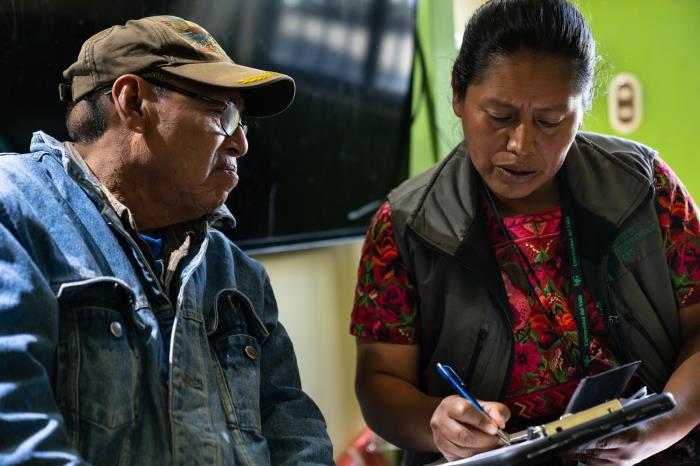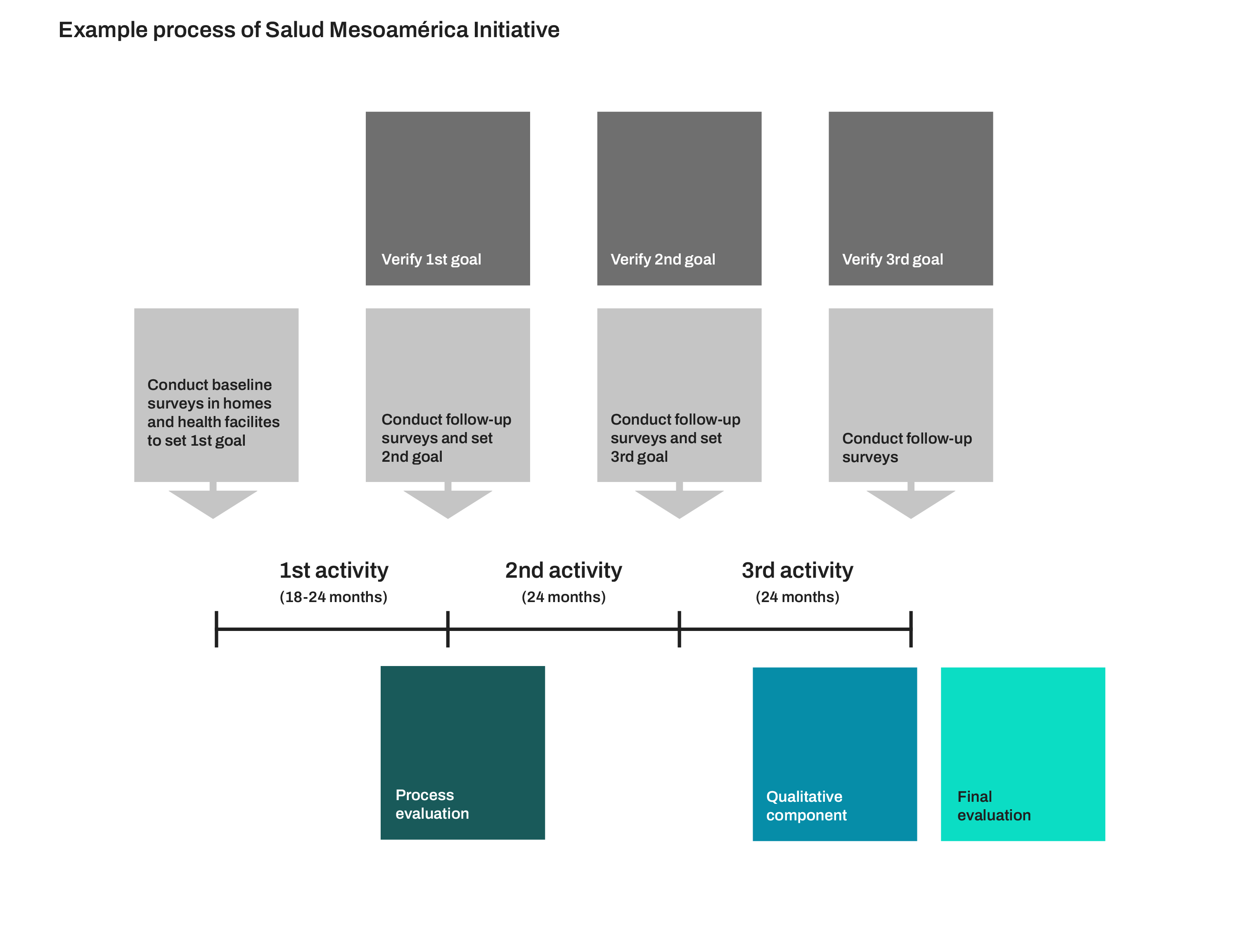

Our analytic strategies and strong partnerships have allowed us to design and carry out rigorous evaluations that fill critical information gaps for decision-making.
A key component of our work is primary data collection to gather inputs for evaluating the impact of programs and policies. Each evaluations project is different, but most use techniques such as:
As an independent evaluator, we use cross-disciplinary quantitative assessment techniques to provide a more comprehensive and evidence-based understanding of what’s needed to improve health.
We not only have expertise in conducting independent evaluations around the world, but our team also has a unique expertise in survey methodology that has been used to collect high-quality data around the world to fill critical data gaps.
Visit each program page to learn more details in specific case studies.
 Diagram showing the process of the Salud Mesoamerica Initiative evaluation project. We began by conducting baseline surveys in homes and health facilities and setting a preliminary goal, then conducted three separate intervention activities, each followed by a survey and a new goal for the next phase. We ended with a qualitative component and a final evaluation." />
Diagram showing the process of the Salud Mesoamerica Initiative evaluation project. We began by conducting baseline surveys in homes and health facilities and setting a preliminary goal, then conducted three separate intervention activities, each followed by a survey and a new goal for the next phase. We ended with a qualitative component and a final evaluation." />
There are multiple components to each evaluations project, depending on the goals of the program.
Our reports can involve: